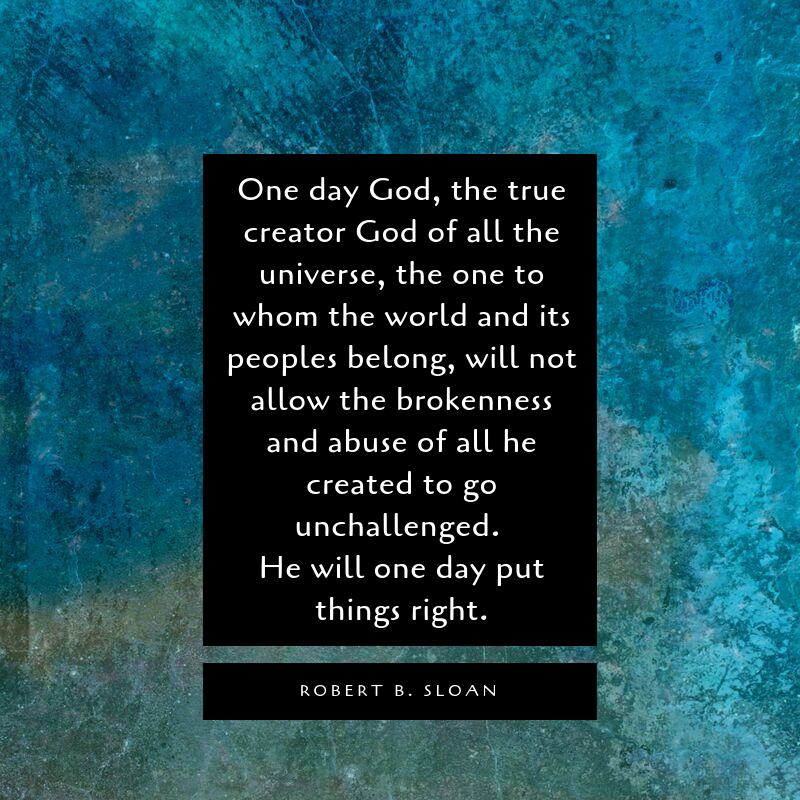The judgment of God is a controversial topic, controversial mostly because it appears harsh, even unfair, and so, unworthy of the picture of God we carry in our minds. The inconsistency between our picture of a loving and merciful God and what we learn from Scripture about God’s just character means we must consider this topic seriously. It matters.
The Definition of Judgment
First, let’s think about definitions of judgment. In the Christian Scriptures, judgment is not uniformly punishment, which is often what we unconsciously assume. (Perhaps we make that assumption because we intuitively know that things are broken within us and our wrongdoings deserve a certain kind of payback. And there’s a lot of truth to that.)
But, again, judgment does not exclusively mean punitive payback. Oftentimes it also refers to justice, where judgment is God reestablishing the order that represents his character and the way he intended the world truly to work.
In this sense, judgment can refer to a basic fairness. For example, it can be the justice that is seen when people are treated without regard to their social or political status, but simply with equity. The idea here would be that God does not show partiality and that those treated unfairly will have their rights restored (note Luke 18:1-8; Romans 2:6-11; Galatians 2:6; James 5:1-6; Revelation 6:9-11).
The Relationship Between Judgment and Restoration
The idea of a coming judgment in which the justice and fairness of God are revealed is in many ways the background of biblical theology. A coming day of reckoning, justice, or judgment means that one day God is going to put things back the way they ought to be. He’s going to reestablish the order that he intended from the beginning because things are broken now and they’ve got to be put right. Putting things right means everything – our world, the invisible spheres, human beings, political and economic systems, and relationships between and among people (note Colossians 1:19-20). And, of course, human relationships with God must be put right. All things need to be restored (Acts 3:21).
Judgment in this sense points to restoration. It suggests that since the world is broken and not the way God intended it (can anyone really dispute that?), that one day God, the true creator God of all the universe, the one to whom the world and its peoples belong, will not allow the brokenness and abuse of all he created to go unchallenged. He will one day put things right.
The Mercy of God
With that coming day of rightness and re-ordering as the background, the amazing thing — it ought to be more controversial, but since we welcome it, we don’t often question it — is the mercy of God. The world in fact is broken, and human hearts are broken, and these brokennesses in the visible and invisible worlds are reflected in the total mess in which our world finds itself. We live in a world filled with violence, hatred, lying, perversity, cruelty, greed, and every conceivable form of twisted thinking and behavior.
But not everything is a complete mess. There’s also kindness, charity, compassion, love, forgiveness, and humility in our world. These kinds of behavior are in fact signals of God’s imprint and ongoing presence in the world he created. And the God who created the world will one day repair its brokenness so that these good and beautiful behaviors prevail.
Justice is a Painful Mercy
Thus, his coming justice is a painful mercy. He will set things right, which can sometimes mean pain. Think of repairing a rotted house. You have to tear out the old and sometimes even repair the foundation before you can rebuild with new wood, bricks, and steel. Restoration doesn’t come easily when the damage is severe. But there is no option to doing it. It has to be done. It is God’s world, and it is in his nature of goodness to fix the world he made. (Sometimes this “fixing” is so dramatic that it is called in the Scriptures a “new creation.”) But however dramatic or painful the fixing has to be, God is justified in doing it. It is his world and he is justified – he is “in the right” – when he begins to set things right, when he comes to judge and thus to restore (Romans 3:4).
And the amazing thing is that, at the very heart of God’s character, is a prevailing desire to forgive and show mercy. There are true moral consequences to the brokenness of the human heart and mind and the brokenness that humanity has inflicted upon God’s world —and God will one day root that out and repair it. It will be painful. But he has also promised to show mercy to those who have contrite hearts, who plead for his mercy. He has in fact made merciful promises to the human race, and his heart for compassionate restoration reflects his own innermost character, his righteous and gracious intent to keep his covenants.
Therefore, in keeping with his promised mercies, it is also part of his justice, his faithful keeping of his word, that he will rescue his world and his people.
The forgiveness offered through Jesus Christ is one whereby, in his mysterious justice, he extends a mercy that can endure even the pain of his restorative justice. The God of all justice, whose justice includes the defeat of evil when he comes to set things right, has also planned and offered the repair of brokenness through his simultaneous willingness to forgive and heal.
Blog edited by Joannah Buffington

